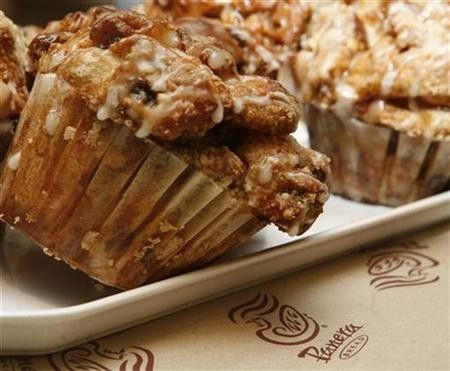Harvard Muffin Makeover Ruins Low Fat Diet Myth

The Culinary Institute of America (CIA) worked on a muffin makeover, with nutrition experts from the Harvard School of Public Health (HSPH), to study healthy breakfast or snack options and the impact of ready- to-eat low-fat diet choices.
The study gauged if homemade muffins were a safe bet, compared to donuts and other store-bought muffins, as a healthy snack break.
The study was based on the fact that most muffins bought at stores deliver the same amount of highly processed flour and sugar as donuts. In fact, low-fat muffin versions, which are deemed healthier, could actually be worse-off due to their higher salt and sugar content.
The CIA developed five new muffin recipes that integrated healthy fats, whole grains and used less salt and sugar. The agenda was to create healthier and tastier muffins and, in the process, also reduce their sizes.
According to the United States Department of Agriculture's (USDA) food composition guide, the four to five ounce muffins sold in coffee shops were equal to two servings and were calorie-rich.
The researchers also noted that other low-fat processed foods were usually higher in sugar, carbohydrates or salt than their full-fat versions. The study results highlighted the fact that not only was a low-fat muffin high in calories but it also contained more carbohydrates and sugar and about 60 percent more sodium than a regular muffin.
They explained that the type of fat mattered more than the amount of fat because it is the highly processed carbohydrate that has the potential for weight gain, with an increased risk of Type 2 Diabetes and heart disease to boot.
It's time to end the low-fat myth, said Walter Willett, a Professor of epidemiology and nutrition and Chair of the Department of Nutrition at HSPH.
In an official statement, Willett said: Unfortunately, many well-motivated people have been led to believe that all fats are bad and that foods loaded with white flour and sugar are healthy choices. This has clearly contributed to the epidemic of diabetes we are experiencing and premature death for many. The lesson contained in these healthy muffins, that foods can be both tasty and good for you can literally be life-saving.
The official Harvard Medical blog on the Blueberry Muffin Battle mentions that regular blueberry muffins from a national coffee shop are hardly what you'd call health food: It has 450 calories, on average nearly double that in a chocolate-frosted donut, most of which comes from carbohydrates... primarily white flour and sugar.
Comparing muffins
Nutrient
Regular blueberry muffin
Reduced-fat blueberry muffin
The Muffin Makeover blueberry muffin
Calories
450
450
130
Carbohydrates (g)
71
81
16
Sugar (g)
38
42
6.5
Fiber (g)
2
2
1.5
Total Fat (g)
15
11
8
Unsaturated Fat (g)
12
9
5
Saturated Fat (g)
3.5
2
1
Protein (g)
7
7
3
Sodium (mg)
435
700
140
Nutrition information from Harvard School of Public Health's Nutrition Source
CIA and HSPH experts have offered some healthy baking tips to make a better muffin...
- Reduce size of muffins
- Use some whole-grain flour and even some whole grains
- Slash the sugar
- Use oil instead of butter
- Add nuts when possible
- Scale back the salt
- Add fruits and vegetables
© Copyright IBTimes 2024. All rights reserved.





















